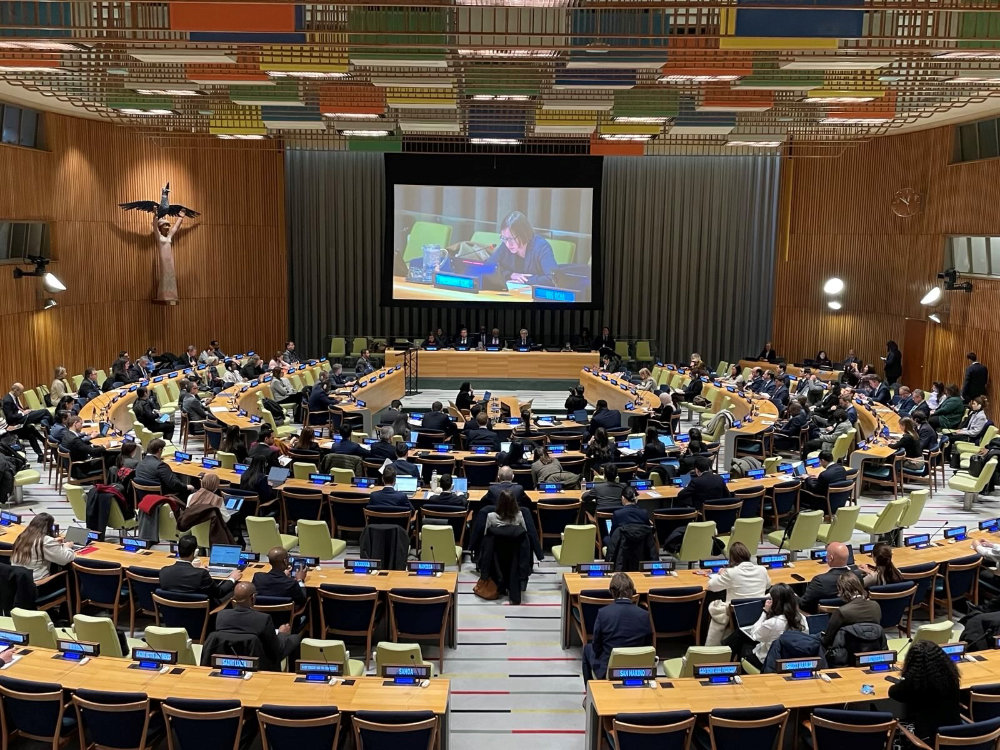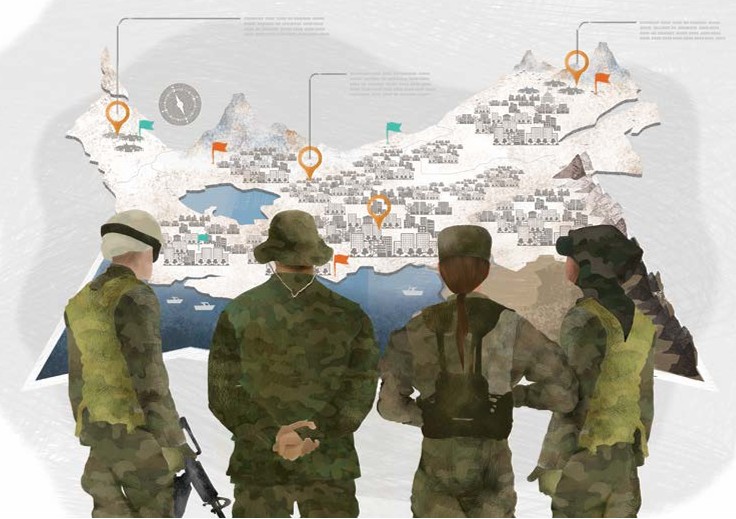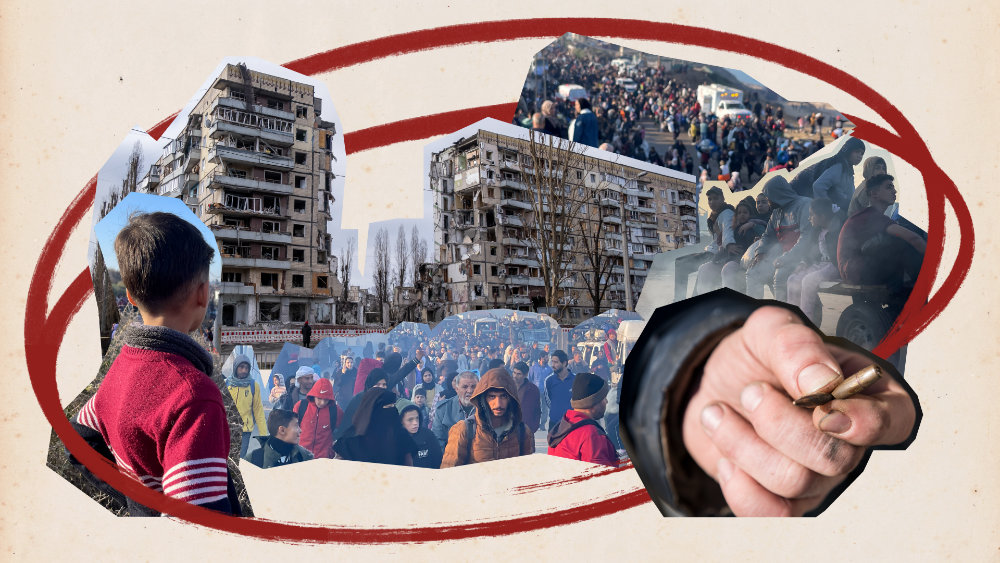As the devastating impacts of armed conflicts continue to mount, civilians are enduring unimaginable suffering. Violations of international humanitarian law (IHL) are compounding these crises, while emerging threats such as autonomous weapons and cyber warfare add new dimensions to the challenges facing humanity. Despite the universal ratification of the Geneva Conventions, the erosion of respect for these fundamental rules of war endangers lives, infrastructure, and the fragile prospects for peace.
In this post, ICRC President Mirjana Spoljaric outlines the pressing need for states to join the Global Initiative on international humanitarian law. By reaffirming their commitment to this much-needed body of law, states can ensure the protection of civilians, restore dignity to those affected by conflict, and build a pathway toward sustainable peace. The time to act is now, and the Global Initiative offers a platform for collective action to uphold the rules that safeguard humanity.
The world faces a critical moment – a time when our shared humanity is both tested and needed. Across the globe, from Gaza to Sudan, Myanmar to Ukraine, conflict is carving deep scars into the lives of millions of people.
Civilians are bearing the brunt of these crises: communities uprooted, families torn apart, and vital infrastructure destroyed. Adding to this burden are emerging challenges – autonomous weapons, cyber warfare, and artificial intelligence – which threaten to circumvent the frameworks that have long governed the conduct of war.
The Geneva Conventions, forged in the aftermath of the world’s darkest hours, strive to protect a minimum of humanity in war. They are not just agreements between states; they are commitments to our collective humanity – rules that protect civilians, safeguard infrastructure, and ensure the humane treatment of all in times of conflict. But these rules of war are only as strong as our resolve to uphold them.
The growing normalization of violations of international humanitarian law poses an existential threat to the Geneva Conventions and international law more broadly. This alarming trend requires urgent collective action.
This is not a theoretical issue. It is a reality that affects millions of people every day and carries a staggering financial toll in the hundreds of billions of dollars.
This is why the ICRC, together with Brazil, China, France, Jordan, Kazakhstan, and South Africa, have launched a global initiative to reinvigorate political commitment to international humanitarian law. Last week at the U.N. General Assembly I called on member states to join us in this initiative to tackle some of the most pressing challenges facing IHL.
Why we need the Global Initiative now
The Global Initiative is an exceptional effort because the current situation demands it.
It is not merely a response to the crises we see today but a proactive effort to secure a future where the fundamental rules of war are respected and upheld. International humanitarian law provides the framework to reduce suffering, restore dignity, and build bridges toward reconciliation. But these laws are only effective if states have the will to enforce them.
The challenges are stark. Civilians continue to be targeted with impunity, and hospitals and schools – places of sanctuary and hope – are attacked. Starvation is used as a weapon of war. Meanwhile, technological advancements, from autonomous weapons to cyber capabilities, raise complex questions on how the existing framework applies to them. Compounding these issues is the politicization of humanitarian concerns, which has stymied multilateral efforts to deliver aid and protect those in need.
While armed conflicts often dominate headlines, the responsibility for upholding international humanitarian law does not lie solely with conflict parties. It is a shared duty of all states, whether directly involved in hostilities or not, to preserve the integrity of the laws that protect humanity.
The Global Initiative on international humanitarian law seeks to confront these realities head-on. It offers states a pathway to reaffirm the rules of humanitarian law as setting widely accepted standards for the conduct of war, to reclaim their role as custodians of these essential laws, and to ensure their application in conflicts around the world.
The objective and workstreams of the Global Initiative
To achieve these goals, the initiative is designed to break traditional silos and bring states together to offer concrete recommendations around how to improve respect for IHL. States will work with ICRC legal experts around seven workstreams.
Some will focus on prevention, with efforts aimed at promoting good practices, strengthening national committees on international humanitarian law, and exploring the links between compliance with these laws and sustainable peace. Others will address critical legal and operational issues, including the protection of civilian infrastructure, safeguarding hospitals in armed conflict, regulating the use of information and communication technologies in warfare, and modernizing the rules of naval warfare.
These workstreams are designed to produce concrete, actionable recommendations that will not only reinforce respect for international humanitarian law but also ensure its relevance in addressing the realities of today’s conflicts. I will be convening a high-level global advisory board to help steer the political process over the next two years.
By 2026, these efforts will culminate in a landmark meeting, where states will take concrete action to ensure the enduring relevance of international humanitarian law. This is not a passive exercise; it is a declaration of intent to safeguard humanity for generations to come.
Why states must join the Global Initiative
The success of the Global Initiative depends on the active participation of states. As the primary guardians of international humanitarian law, states have both the responsibility and the power to bring about meaningful change. Joining this initiative is not merely an act of leadership – it is a reaffirmation of shared values and a commitment to a more humane world.
For states, this initiative provides the tools to strengthen their capacities, from improving military training to reinforcing domestic legal frameworks. The benefits extend beyond national borders. Respect for international humanitarian law reduces the human toll of conflict, mitigates cycles of violence, and fosters conditions for lasting peace.
History shows us that when the rules of war are ignored, violence escalates unchecked, destabilizing societies and threatening global security. By joining the Global Initiative, states reaffirm that even in the darkest times our shared humanity must prevail.
A shared responsibility
The Global Initiative on international humanitarian law is more than a program; it is a collective promise that transcends borders and politics. It is a testament to the values we hold in common and a call to uphold the principles that define us as a global community.
I urge every state to join the Global Initiative, to stand with us in defense of humanity’s most sacred principles. This is not a task for tomorrow. It is a responsibility for today.
Preserving human dignity in armed conflict
On 28 January, UN General Assembly President Philémon Yang convened an informal interactive dialogue on “Preserving Human Dignity in Armed Conflict: Promoting Compliance with IHL.” This flagship event of his tenure featured opening remarks by President Yang and Emergency Relief Coordinator Tom Fletcher, with a keynote by ICRC President Mirjana Spoljaric.
Speakers and panelists – including experts from humanitarian, legal, and military backgrounds – highlighted the need to strengthen compliance with international humanitarian law, addressed implementation challenges, and encouraged national and multilateral efforts for better adherence. The ICRC President and Chief Legal Officer promoted the Global Initiative on IHL, inviting all states to join.
With at least 85 member states in attendance, the dialogue saw 63 requests for the floor, with 41 statements delivered live, and another seven submitted electronically. All reaffirmed IHL’s importance, while 20 explicitly welcoming the Global Initiative on IHL.
Jordan spoke on behalf of the six states that launched the initiative with the ICRC (Brazil, China, France, Jordan, Kazakhstan, and South Africa) and nine states announced their intention to join (Switzerland, Liechtenstein, Luxembourg, Canada, Australia, Austria, Germany, the Netherlands, Finland, plus the UK electronically).
See also:
- Cordula Droege, Championing IHL compliance in contemporary armed conflict: the 2024 ICRC Challenges Report, October 9, 2024
- Ellen Policinski, War’s long legacy: the continued importance of the Geneva Conventions 75 years later, August 8, 2024
- Cordula Droege, War and what we make of the law, July 18, 2024
- Robert Mardini, Back to basics: humanitarian principles in contemporary armed conflict, June 16, 2022





